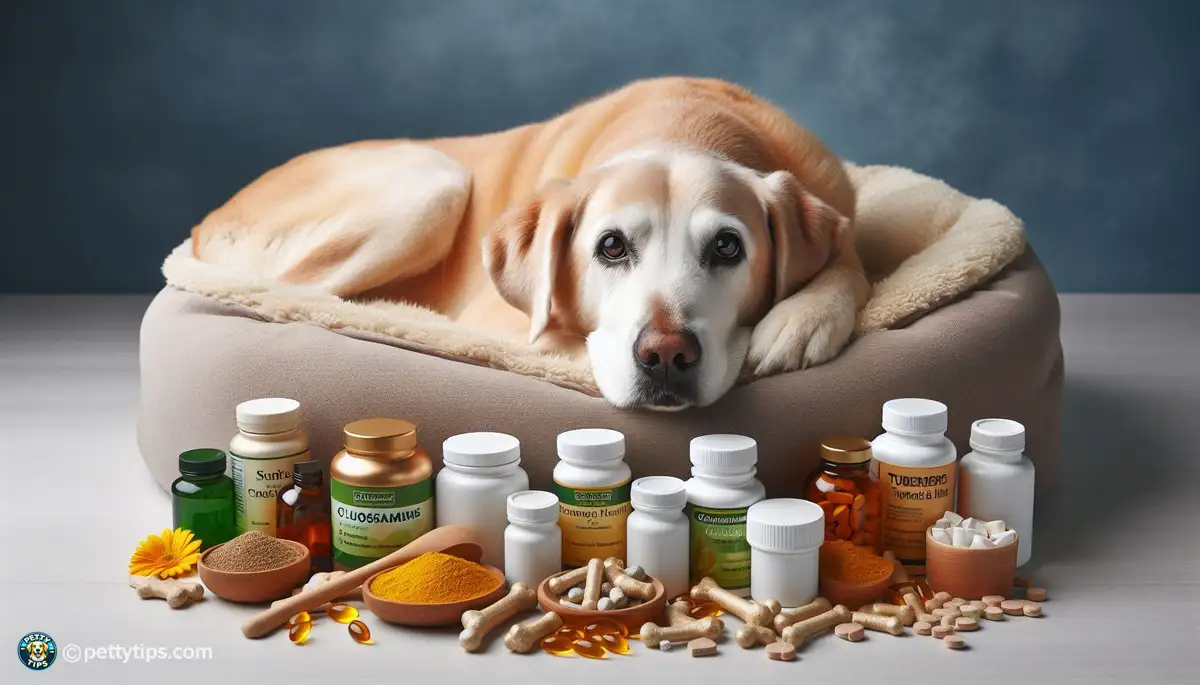
Avoiding Allergens in Pet Treats: What to Look For
Annabelle Clarke - Oct 21, 2024 - 8 min read


As our pets age, their joints go through wear and tear, just like ours do. But unlike us, they can't vocalize their discomfort, so it's up to us to pay close attention to their mobility and behavior. joint issues can affect pets of any breed or size, but they're particularly common in larger breeds and those prone to certain genetic conditions like hip dysplasia or arthritis. It's heartbreaking to see our furry companions struggle to get up or limp around due to joint pain. That's where supplements can make a significant difference.
senior pets can face a variety of joint issues, with arthritis being one of the most prevalent. Arthritis occurs when the cartilage that cushions the joints wears down over time, leading to inflammation, pain, and reduced mobility. Another common issue is hip dysplasia, especially in larger dog breeds. This condition involves the abnormal formation of the hip joint, which can cause discomfort and difficulty moving. Additionally, degenerative joint disease (DJD) can affect both cats and dogs, causing stiffness and pain in the joints.
It's essential to recognize the signs of joint problems in our senior pets so we can address them promptly. Keep an eye out for symptoms such as limping, reluctance to jump or climb stairs, stiffness, decreased activity level, and changes in behavior or mood. Sometimes these signs can be subtle, so it's crucial to observe your pet closely and consult with your veterinarian if you notice any concerning changes in their mobility or behavior.
Glucosamine and chondroitin are two of the most well-known supplements for joint health, and for good reason. Glucosamine helps to maintain the integrity of joint cartilage, while chondroitin supports cartilage elasticity and inhibits the enzymes that break it down. Together, they can help reduce inflammation, improve joint function, and alleviate pain in senior pets with arthritis or other joint issues.
omega-3 fatty acids, commonly found in fish oil supplements, offer a myriad of health benefits for pets, including support for joint health. These essential fatty acids have anti-inflammatory properties that can help reduce joint inflammation and alleviate discomfort. Adding omega-3 fatty acids to your senior pet's diet can promote joint flexibility and mobility, making it easier for them to move around comfortably.
MSM is a naturally occurring compound that contains sulfur, which is essential for maintaining healthy joint tissue. It's believed to help reduce inflammation and pain associated with joint conditions like arthritis. MSM supplements are often used in conjunction with glucosamine and chondroitin to provide comprehensive support for senior pets' joint health. By addressing inflammation and promoting cartilage repair, MSM can help improve mobility and overall quality of life for senior pets with joint issues.
Before starting any supplement regimen for your senior pet, it's crucial to consult with your veterinarian. They can assess your pet's specific needs, recommend appropriate supplements, and provide guidance on dosage and administration. Your vet can also rule out any underlying medical conditions that may be contributing to your pet's joint issues and recommend other treatment options as needed.
When selecting supplements for your senior pet, it's essential to choose high-quality products from reputable manufacturers. Look for supplements that have undergone testing for safety, efficacy, and purity. Avoid products with unnecessary additives or fillers, as these may be harmful to your pet's health. Additionally, be sure to follow the recommended dosage instructions carefully and monitor your pet for any adverse reactions.
Once you've started your senior pet on a supplement regimen, it's essential to monitor their response closely. Keep track of any changes in their mobility, behavior, or overall well-being, and report them to your veterinarian. Depending on your pet's individual needs and response to the supplements, adjustments to the dosage or formulation may be necessary. Regular check-ups with your vet can help ensure that your pet is receiving the optimal support for their joint health.
Consistency is crucial when it comes to supplementing your senior pet's diet for joint health. Incorporate the supplements into their daily routine in a way that works for both of you. Whether you mix them into their food, hide them in treats, or administer them directly, aim to provide the supplements at the same time each day to establish a routine. Consistent use of supplements can maximize their effectiveness and help support your pet's joint health over the long term.
It's important to have realistic expectations when starting a supplement regimen for your senior pet's joint health. While some pets may experience rapid improvement in their mobility and comfort, others may take longer to respond. Be patient and persistent, and give the supplements time to work. Remember that joint health is a long-term commitment, and consistent use of supplements, along with other veterinary care and lifestyle modifications, can help keep your senior pet happy and comfortable as they age.
In addition to supplements, a holistic approach to senior pet care involves addressing all aspects of your pet's health and well-being. This includes maintaining a healthy diet, providing regular exercise appropriate for their age and condition, managing their weight to reduce stress on their joints, and ensuring they have a comfortable environment to live in. By taking a comprehensive approach to your senior pet's care, you can help them enjoy their golden years to the fullest.